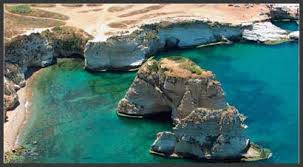
The Lebanese tourism ministry has just released visitor figures for 2015. It appears that despite ongoing security concerns, nearly 2 million Syrians pushing Lebanon’s infrastructure to breaking point and an ongoing environmental emergency, we welcomed 1,517,927 visitors last year, an increase of more than 10 per cent on 2014.
But I’m not convinced that our tourist industry is doing that well. It is widely known that business travellers are included in the numbers, as are the hundreds of thousands of Lebanese who carry foreign passports and who may be coming here for reasons other than relaxation or sightseeing. I also imagine that many of those Iraqis who we are told make up the biggest number of Arab visitors are en route to a better life in Europe.
Not only will a more forensic examination of the data paint a more accurate picture of who is heading over our borders, I can also allow myself a degree of speculative scepticism because the visitor presence is simply not as palpable as it was when the tourist numbers were half as high as they claim to be today. Back in the late 1990s, when I covered the tourism industry beat for the Beirut Daily Star, 1 million visitors a year was the dream number and if memory serves, we welcomed about 800,000 each year. Even with those modest numbers, many Lebanese fled Beirut in August because it was so congested.
But we were happy. Lebanon was back. It was with a genuine sense of relish that we welcomed the Arab tourist and everyone wanted a piece of the action. Up in the mountains, where the pre-war Arab elite had summered, they were doing their very best to woo back business. I interviewed the mayor of Bhamdoun, who was at pains to reassure tourists from the more conservative GCC nations that his resort town was the model of moral rectitude. He told me that he had banned sleeveless T-shirts and advised anyone looking for less than wholesome entertainment to go to neighbouring Aley. Ah, the good old days.
But seriously, the numbers of foreigners may very well be up, but the tourist sector has all but disappeared. Iraqis are the now the most frequent Arab travellers to the Lebanese capital, 50 per cent more than the Emiratis, Saudis and Kuwaitis, the traditional catchment, combined. The shift is easy to explain. Quite simply, the Gulf nationals don’t feel safe and haven’t since 2012, when the summer season was cut short by kidnap threats aimed at the Arab visitors. In the process Beirut has lost much of its sheen and the Arab money has fled to Europe.
While London property is now viewed as a reserve currency, the super-spacious and high-spec Beirut apartments built for Arab investors lie either unoccupied or unsold, a sad vanity project in which the property-owning aspirations of the Lebanese middle class were brushed aside by developers blinded by the quick buck.
The Lebanese are hoping that the election of a president will once again signal a new era of stability and prosperity like the four years between the nomination of Michel Suleiman in 2008 and 2012, when the impact of the Syrian civil war began to bite. It may happen, but the “make-hay-when-the-sun-shines” attitude to business will never insulate the country from the shocks in a region that is again the centre of world attention.
It may just be that Lebanon can never be anything other than a giant service-oriented entrepôt, that the art of turning the quick buck is simply too embedded in our DNA, that we are too suspicious and been turned over one too many times to see life in any other way
Either way, we Lebanese must stop fooling ourselves that nothing is wrong; that we live in paradise and that the world, or at least the region, owes us a living.
Michael Karam is a freelance writer who lives between Beirut and Brighton.



